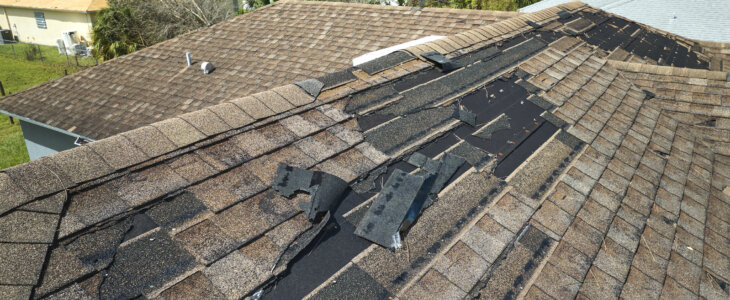Property owners often face significant damage from both wind and floodwaters when a hurricane or major storm hits Coral Springs. Unfortunately, distinguishing between the two types of damage can lead to complicated disputes with insurance companies. This is especially true because many homeowners have separate wind and flood coverage policies, with each policy potentially covering only part of the total damage. In such cases, having an attorney by your side with knowledge and experience like Tomlinson Law Group can be invaluable in resolving disputes over whether the damage was caused by wind, flooding, or a combination of both.
The Difference Between Wind and Flood Insurance
Before diving into how attorneys can help, it’s essential to understand the key differences between wind and flood insurance policies:
- Wind Insurance: Typically included in most standard homeowner’s insurance policies, wind coverage pays for damages caused by hurricanes, tornadoes, and strong winds. This can include broken windows, roof damage, and destruction caused by flying debris. In hurricane-prone areas like Florida, homeowners may have to purchase separate windstorm insurance if wind damage is excluded from their general policy.
- Flood Insurance: Standard homeowner’s policies do not cover flood damage. Instead, property owners need to purchase a separate flood insurance policy, often through the National Flood Insurance Program (NFIP). Flood insurance covers damages caused by rising water levels, such as flooding from storm surges or overflowing rivers.
Because wind and flood damage are covered under separate policies, disputes arise when an insurer claims the damage falls under the other policy’s responsibility, leading to potential denials or underpaid claims. This is where legal knowledge becomes crucial.
Common Disputes Over Wind vs. Flood Damage
When a home is damaged in a hurricane, determining the cause of the damage can be tricky. Insurance companies may argue that damages were caused by flooding, not wind, or vice versa, in an effort to minimize payouts. Some of the most common disputes include:
- Roof Damage: If a hurricane causes extensive roof damage, wind insurers may argue that the roof was compromised by rising floodwaters, which would place the burden on the flood insurance policy.
- Water Intrusion: Wind-driven rain may enter through broken windows or damaged roofs, causing water damage to the interior of a home. In these cases, homeowners may face disputes over whether the water intrusion resulted from wind or flood conditions.
- Structural Damage: Flood insurers may argue that structural damage, such as the collapse of walls or foundations, was caused by wind pressure, while wind insurers may contend that it was due to flooding.
These disputes often leave homeowners caught between two insurance companies, each trying to shift responsibility to the other, leaving property owners struggling to repair and restore their homes.
How Attorneys Can Help Resolve Wind vs. Flood Damage Disputes
Experienced attorneys can play a critical role in resolving these disputes and helping homeowners receive the compensation they are entitled to. Here’s how:
Policy Review and Analysis
Insurance policies are often complex and filled with jargon that can be confusing for the average person. Attorneys can review your wind and flood insurance policies to identify coverage limits, exclusions, and responsibilities. This thorough analysis helps ensure that your rights as a policyholder are fully understood and any ambiguities can be addressed.
Gathering and Presenting Evidence
Attorneys know how to gather the necessary evidence to support your claim. This can include:
- Engineering Reports: Attorneys can help hire experts, such as structural engineers, to assess the damage and determine its cause. These reports can serve as vital evidence in disputes over whether the damage was caused by wind or flooding.
- Documentation: Attorneys can help document the damage, gathering photos, videos, and records of repair estimates to support your claim. Proper documentation is essential when presenting your case to the insurance company.
- Meteorological Data: In some cases, attorneys may use weather reports and data from the time of the storm to prove that wind, not floodwater, caused damage to your property.
Negotiating with Insurance Companies
Insurance companies often try to minimize their payouts by downplaying the extent of damage or attributing it to causes not covered under your policy. Attorneys are skilled negotiators who can handle communications with insurers on your behalf. They can counter lowball settlement offers and push for a fair and accurate payout based on the actual damage.
Filing a Lawsuit
If negotiations fail, your attorney can file a lawsuit against the insurance company. Litigation may be necessary when insurers refuse to cover damages fairly or if they deny the claim outright. In court, your attorney can present the evidence gathered to prove that the damage was caused by the type of disaster covered under your policy. In some cases, the threat of litigation alone can push insurers to settle the dispute.
Handling Bad Faith Insurance Claims
Florida law protects policyholders from insurance companies acting in “bad faith.” This occurs when an insurer wrongfully denies a valid claim, delays payment, or underpays based on misleading assessments. If an insurance company acts in bad faith, an attorney can help you file a claim against the insurer, potentially leading to compensation for damages beyond the initial claim.
Your Coral Springs Wind and Flood Coverage Attorneys
The aftermath of a hurricane can be emotionally and financially draining. Dealing with extensive property damage while juggling multiple insurance companies and policies only adds to the stress.
With the right legal assistance, you can resolve these issues and ensure that you’re fully compensated for your losses. Whether your home has suffered roof damage, water intrusion, or structural issues, having an attorney on your side can make all the difference in protecting your rights and restoring your property. Contact us today to learn how we can assist with your insurance claim.


